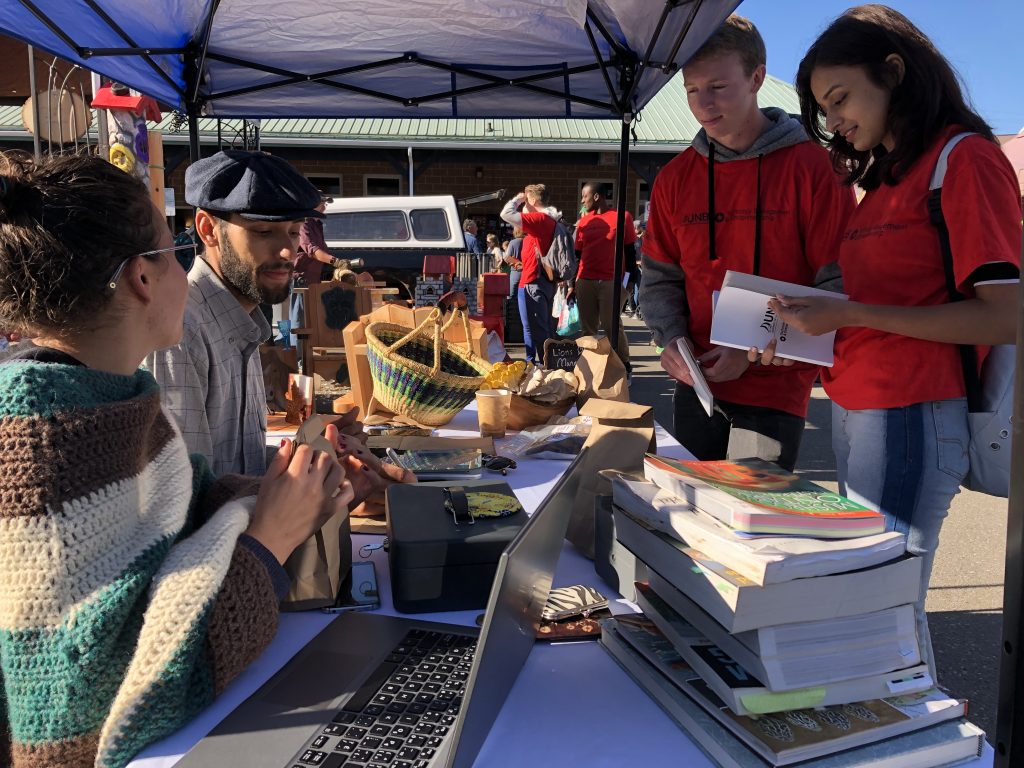Last month, the Boyce Farmers’ Market became the classroom for entrepreneurship students tasked with identifying and solving a problem.
Students from the Masters of Technology Management and Entrepreneurship (MTME) were assigned “Cram 1.0” —a new addition to the program this year. The degree is completed within a year and consists of a total of eight courses for fall and winter.
Cram 1.0 is a time-based experiential learning task where MTME students have the opportunity combine theoretical knowledge gained from courses and seminars to find and solve a problem in a selected area within a restricted time period.
Program manager Phil Lambert said they created Cram 1.0 based on feedback from previous students. Along with traditional courses, the students participated in a day of seminars on Sept. 7 to prepare for an eventful weekend.
Sam Poirier, a UNB mechanical engineering graduate, and Dikshita Khichi, a computer science graduate from India were put on a team for this task.
Poirier said the seminar helped him understand how to talk to different types of customers and recognize which questions are most effective in identifying a problem.

Khichi reached Fredericton at 11 p.m. on Sept. 7 and was unable to attend the seminar. Despite missing the training, the hackathon at the farmers’ market helped her to identify and work on struggles relating to customer discovery.
“I think it is more about approaching people first […] and making them feel comfortable talking about the Farmers’ Market,” Khichi said.
On Sept. 8, each team interviewed vendors at the Farmers’ Market to identify their needs. Upon choosing the issue they want to address, the students created a prototype and presented their solutions on Sunday, Sept 9.
Assistant engineering professor, David Foord, said that the idea is also to have the students do the whole course in one weekend.
“The students will learn about design work and customer discovery by talking to the vendors and people at the market, trying to understand what problems they face,” Foord said.
Program coordinators want students to understand that actual product design is non-linear and iterative; this exercise will enable students to apply theoretical knowledge and experience and connect various stages of design.
“The challenge that most students face going into a project where they have to develop something, they see it as a linear path, they tend not to understand how the various stages of project relate to each other,” said Kush Babbar, an assistant professor in the program.
Students participated in an extended version called Cram 2.0 on Sept. 17. For this second part they were allotted four days to complete the task; they were also allowed to pick their product, idea and team.




